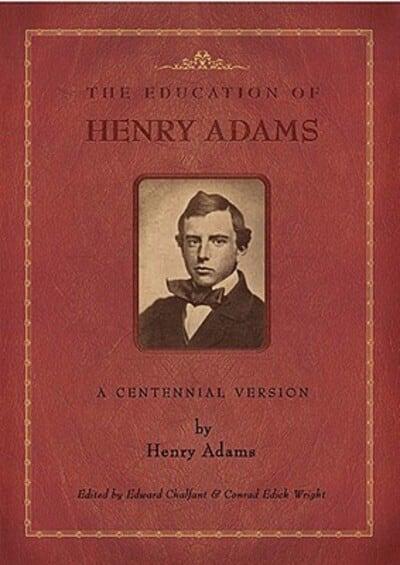The Education of Henry Adams (1919) by Henry Adams.
Good Reads meta-data is 320 pages rated 3.64 by 4,669 litizens.
Genre: Autobiography.
Verdict: Sprightly before sagging.
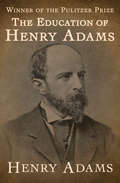
Everything is a learning experience in the life of Henry Adams (1838-1918), each twist and turn in life furthers his education about the ways of the world. Though I began to worry when he reached his twentieth year there was no sign of interest in the ways of women.
Inheritor of a weighty family tradition with two presidents and innumerable other worthies, congressmen, governors, Ambassadors, young Henry Adams, as he calls himself, never felt equal to the responsibility of being an Adams of Quincy. Yet he had no choice but to try. This book records his participant-observation of his own life from boy to man. While it is sometimes introspective, it does not drip with the self-indulgent carping of Jean-Jacques Rousseau’s autobiography, The Confessions. Having read very few autobiographies, put off by the aforementioned Rousseau, I cannot compare the book at hand to another title.
Henry Adams had extensive schooling in the classics and languages, of which he makes light, and travelled in Europe before the U.S. Civil War (1861-1865) through France, Germany, and Italy in particular. During the Civil War he served as the private secretary to his father who was the United States ambassador to Great Britain. Again he makes light of this service but it was crucial to keep Britain neutral despite the incessant lobbying of Confederate interests aligned with the English cotton industry. Moreover, many Brits wanted a weakened Dis-United States to reduce a commercial rival, and a long, bitter, internal war was to be encouraged. The ambassador had his work cut out for him, and Henry Adams lent a willing hand whenever, wherever, and however he could.
In the post-war Gilded Age Adams mixed with Secretaries of State, novelists like Henry James, and others of the great and good with his mixture of bonhomie and sarcasm. James used him as the basis for several characters in his novels.
Many of the glosses on Education like those on – shudder! – Good Reads, take it rather literally. For such glossers the thesis is that his classics education fitted him for the Eighteenth Century with its languages and literature but not for the Twentieth Century with its science, mathematics, and technology. He certainly has some things to say about college education like this passage: ‘the lecture system … flourished in the thirteenth century. The professor mumbled his comments; the students made, or seemed to make notes’ (p 44). They would have learned more in discussion or by reading the books themselves but to get a degree the professor had to lecture and they had to listen.
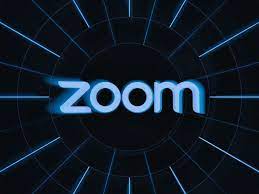
How little has changed with Zoom lectures.
As salty as his comments are on education that subject is not the overarching theme of the book. The master narrative is the coming of the Civil War, the War itself, and the aftermath with all the accompanying financial, social, and political turmoil that ushered in the Twentieth Century.
Near the halfway point the book skips the twenty years between 1872-1892 (the apogee of the Gilded Age), and does not mention at all his marriage and the illness and suicide of his wife, Clover Hooper, in 1885, who, while ill herself, had fallen into an inconsolable depression after the sudden death of her father. The second half has none of zip or esprit of the first, and reads almost as though it were an assignment, perhaps self-imposed therapy after the death of his wife. Yet it goes on and on about the people and personalities of Washington DC, none too minor, none too obscure to mention.
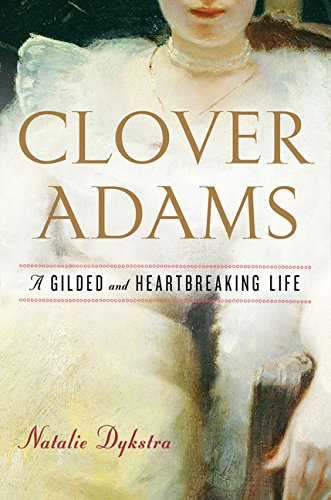
By the way if you have ever tramped through Rock Creek Park in D.C. you may have come across the memorial Adams raised to Clover. I am pretty sure I did on the infamous occasion when I got lost there as darkness fell.
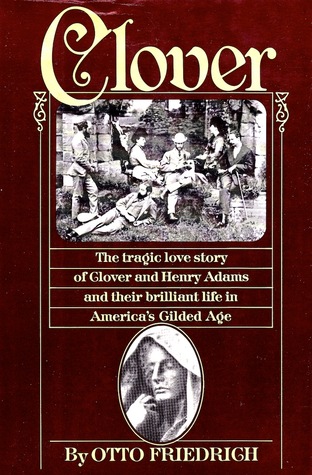
Taken as a whole the book is a thud. If only the first half, well it has something to recommend it in both form (zip) and content (the politicking of English neutrality). That achievement is numbed by the lifeless second half.
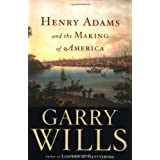
Published posthumously, it is a title I have heard since Year Zero, but never turned a page of it, but then the Mechanical Turk at Amazon recommended it and I tasted the Kindle sample, found it lively, and more importantly I noticed that the Modern Library sometime in the 1960s placed it first in a list of the best one hundred works of nonfiction published in the United States in the Twentieth Century. That seemed to be quite an accolade, and from a source that I respected. Only later did I realise that all the top hundred books on the Modern Library’s many lists were – you guessed it – published by the Modern Library.

